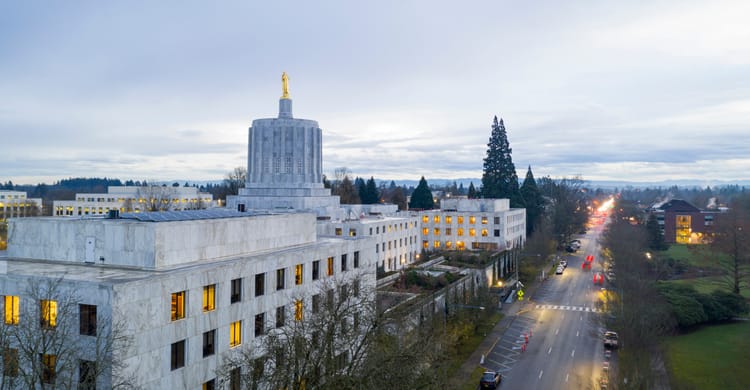Despite Economic Pessimism, Oregonians Mostly Approve Local Funding Measures

On Tuesday, May 17, Oregonians cast their ballots to nominate partisan candidates for the general election and nonpartisan state and local offices. Although much of the media’s attention focused on the high-profile candidate elections, voters also decided the fate of 57 local funding measures to pay for new and existing services.
In the days leading up to the primary election, Oregon Public Broadcasting released a poll suggesting voters were pessimistic about the economy and hesitant to dig into their pockets to pay for new or expanded services. Despite the negative sentiment, Oregonians approved 68 percent of the local funding measures appearing on the ballot despite those concerns. These include proposals to increase funding for public safety, education, parks and recreation, and other core government programs.

While voters approved most funding measures, 68 percent represents the lowest support for tax increases since the beginning of the pandemic, according to John Horvick at DHM Research. Support also waned outside Portland and the Willamette Valley, with voters in southern and eastern Oregon rejecting more than half of the funding measures.

It’s easy to dismiss the failure of those measures as a rural predisposition to oppose taxes and expanded government; however, it’s likely more nuanced. On a recent episode of The Oregon Bridge podcast, Reagan Knopp suggested the conventional wisdom of an anti-tax electorate can become a self-fulfilling prophecy. If a city, county, or special district feels the need to narrow the scope of a funding measure to make it more palatable to voters, some may decide a tax increase is undeserving because it is too barebones.
In some counties, leaders are considering entirely new funding mechanisms for the fall rather than scaling back their spending plans. In Curry and Josephine counties, officials are gauging the public’s willingness to support new consumption taxes as a permanent funding mechanism for public safety in a region that has historically opposed local option property tax levies.
It is also worth noting the recent election lacked the tax controversy the Portland area has grown accustomed to seeing on ballots, such as novel taxes on income, payrolls, and business gross receipts. Although the primary election was without contentious tax measures, the jury is still out on the cycle. Activists in Multnomah and Washington counties are pursuing creative tax initiatives for the General Election. In Multnomah County, housing advocates are collecting signatures for a measure imposing a new capital gains tax to finance legal representation for tenants facing eviction. And, in Washington County, preschool advocates are seeking the county board of commissioners to refer a new individual income tax on “high earners” (more than $125,000 for individuals and $250,000 for joint filers) and a new employer payroll tax on wages exceeding the same amount.





